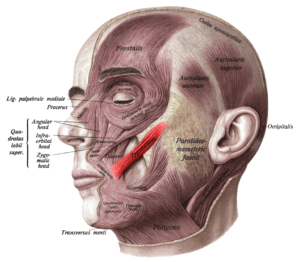How Smiling Affects the Brain
Smiling affects the brain. Most people never consider how this simple act can make every day better and brighter. The shoppers at Aldi supermarkets have figured it out. They have honored traditions like offering a simple bouquet of flowers to a stranger having a rough day. The shoppers at Aldi practice just being nice — and it makes the world a better place.
Simple Magic Is Unleashed When You Smile
When we smile in a mirror, our reflection smiles back at us. In the real world, when we smile at a total stranger, they usually smile back also. Our children know the blessings of a smile and laughter, but we often lose that as we transition into the adult world.
Children smile an average of 400 to 500 times per day! Unfortunately, a happy adult manages 40 to 50 smiles per day. For the average adult, the numbers are even more distressing as they only manage 20 to 30 smiles per day. What kind of a world would we create if we could unleash the unbridled happiness of children into the adult world?
Aside from a smile being the symbol we use to show happiness, what physical effect do they have?
How the Smile Muscle Works

There are 43 different muscles in the face that contribute to our ability to show different feelings with expressions. The main muscle that controls our ability to smile is the zygomaticus major, also known as the smile muscle.
The smile muscle extends from the cheekbone on each side to the corners of the mouth. When it has a split it is called a bifid zygomaticus major and may cause dimples. That is a discussion for a different day, though. The zygomaticus major is the muscle that allows the corners of our mouths to raise, forming a smile.
When we smile, the zygomaticus major retracts, pulling up the corners of our mouths. Our facial muscles are also directly connected to our brains and neural network. The simple act of smiling creates a chain reaction within our brains, which is where the magic really happens!
Explaining How Smiling Affects the Brain
We see a child playing, their laughter and joy make us smile. A stranger holds a door open for us and greets us with a smile that we gleefully return. We see a familiar face wading through the crowd at the airport as a family member comes home for the holidays and we smile. Whatever the reason for the smile, the action causes an immediate reaction in our brain.
The first thing that occurs is the release of small molecules or neuropeptides, and neurotransmitters that fend off stress. The immediate reaction causes an increase in blood pressure and perhaps a flushed face as blood circulation increases. But then our bodies relax, relieving stress — all because of a tiny smile!
The tiny messengers, dopamine, endorphins, and serotonin all play a significant role. Indeed, the trio is known as the Happy Hormones or Feel-Good neurotransmitters. Each messenger creates a reaction that courses through the entire body.
Endorphins are natural pain relievers. When we fall and hurt ourselves, but start laughing about how silly we must look, endorphins go to work to lessen the pain. In several studies with surgical patients, those who expressed joy and smiled a lot felt less pain and required fewer pain relief medications.
Serotonin and dopamine are the body’s natural anti-depressants. You can create a mood boost with a fake smile. Think a happy thought and try on a smile right now.
Another combined effect from the release of the Happy Hormones is stress relief, which can also lower blood pressure and heart rate. After the initial rush that briefly raises blood pressure and may cause a flush, our bodies relax. So smiling and laughing can also have great health benefits.
Stress Relief Through Laughter Therapy
Although the act of smiling may never alleviate the need for prescription medications for depression, it can be a great help. So much so that doctors have even begun prescribing laughter therapy and laughing yoga as an additional method to help patients.
Laugh therapy groups meet for the sole purpose of laughing. The first laugh is usually a stilted and very fake-sounding, “Haha” uttered at fellow group members. The sheer fakeness is funny, and someone laughs a bit. The next thing you know, the whole group is participating in tear-inducing, gut-splitting laughter.
The purpose of laugh therapy is to help our bodies heal themselves by forcing the release of Happy Hormones. Not only does laughter and smiling relieve stress, but it also boosts our immune system and overall health. Laugh yoga works in a similar manner. And if you’re really a glutton for a gut-splitting laugh session, try goat yoga — because baby goats are always hilarious!
Smiling in Your Daily Life
For better brain health, you can add smiles to your daily life. Smile when you wake up in the morning. Smile when the coffee finishes brewing. Choose a bright outfit that makes you smile. Watch your children sleeping for a few moments before waking them for school.
There are many instances during our normal days where we can add smiles. As you pass someone in the corridor, smile and say, “Good morning.” Most will smile back. Not only did you brighten your day with a smile, but now your neighbor is also smiling!
View this post on Instagram
Smiles are one of the most contagious actions we perform. We are naturally more apt to return smiles from a friendly face, even if we’re having a rotten day. Just as with laugh therapy, even a fake smile can prompt the release of serotonin and dopamine to improve your mood.
Smiling in Your Workplace
Smiling in the workplace can help improve the overall atmosphere. It can also improve productivity. When people enjoy going to work, they naturally work better. So if you want to improve your workplace — just smile more.
Knowing how smiling affects the brain can improve every aspect of your life!
Smiling Affects the Brain — Tune Yours Up
If you don’t like to smile because you are dissatisfied with the way your smile looks, Dillon American Orthodontic Care can fix that. Located in Landstuhl-Ramstein, Germany, Dr. Michael Dillon, and the entire staff want to help you discover your perfect smile.
Scheduling your First Appointment is simple — just fill out the Appointment Request form and submit it. Whether you are seeking treatment for yourself or a child or teen, Dr. Dillon offers Invisalign®, traditional braces, and more.
Please check us out on Facebook and Instagram. Like our pages for news, tips, and information.



 Dillon Orthodontic Care
Dillon Orthodontic Care